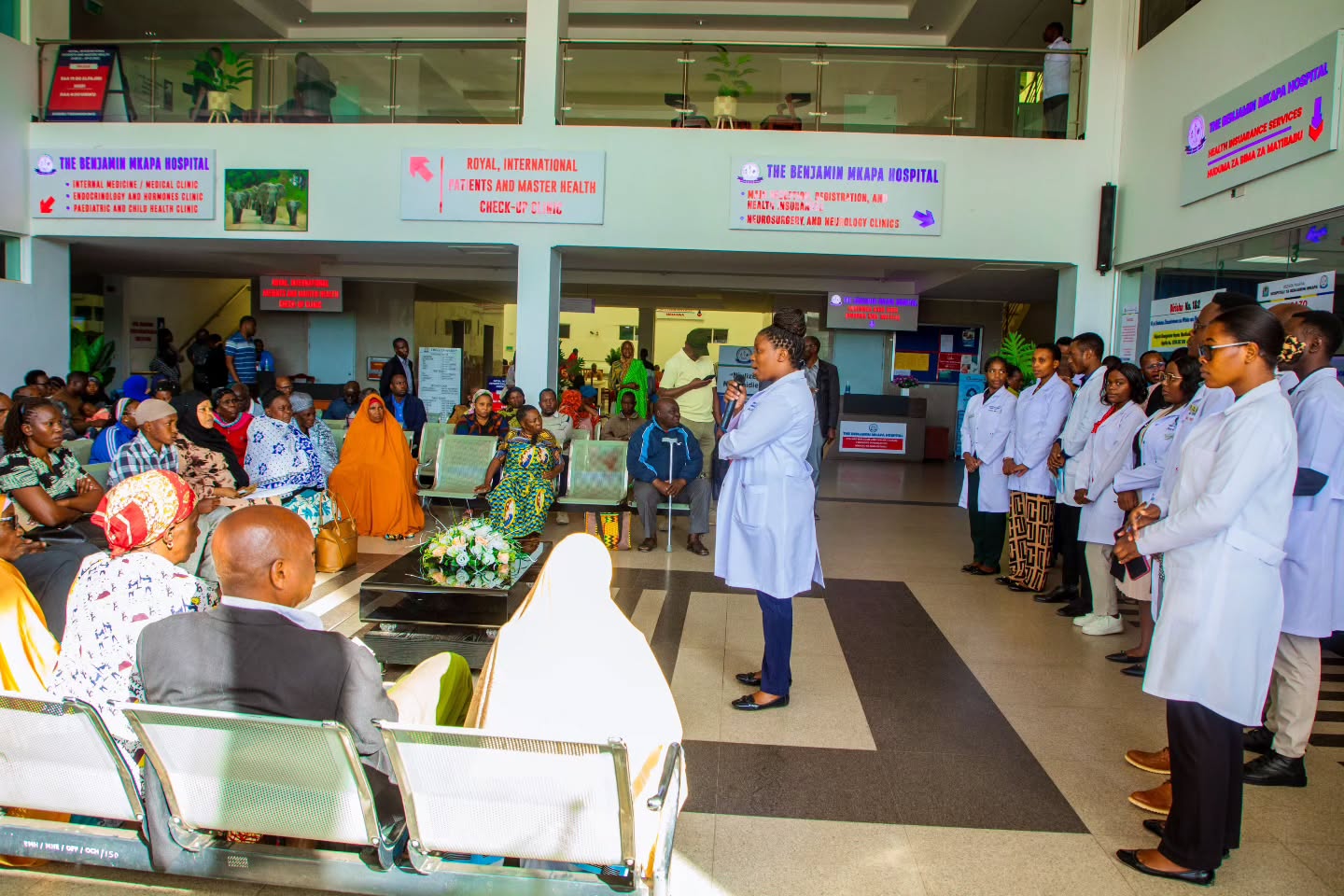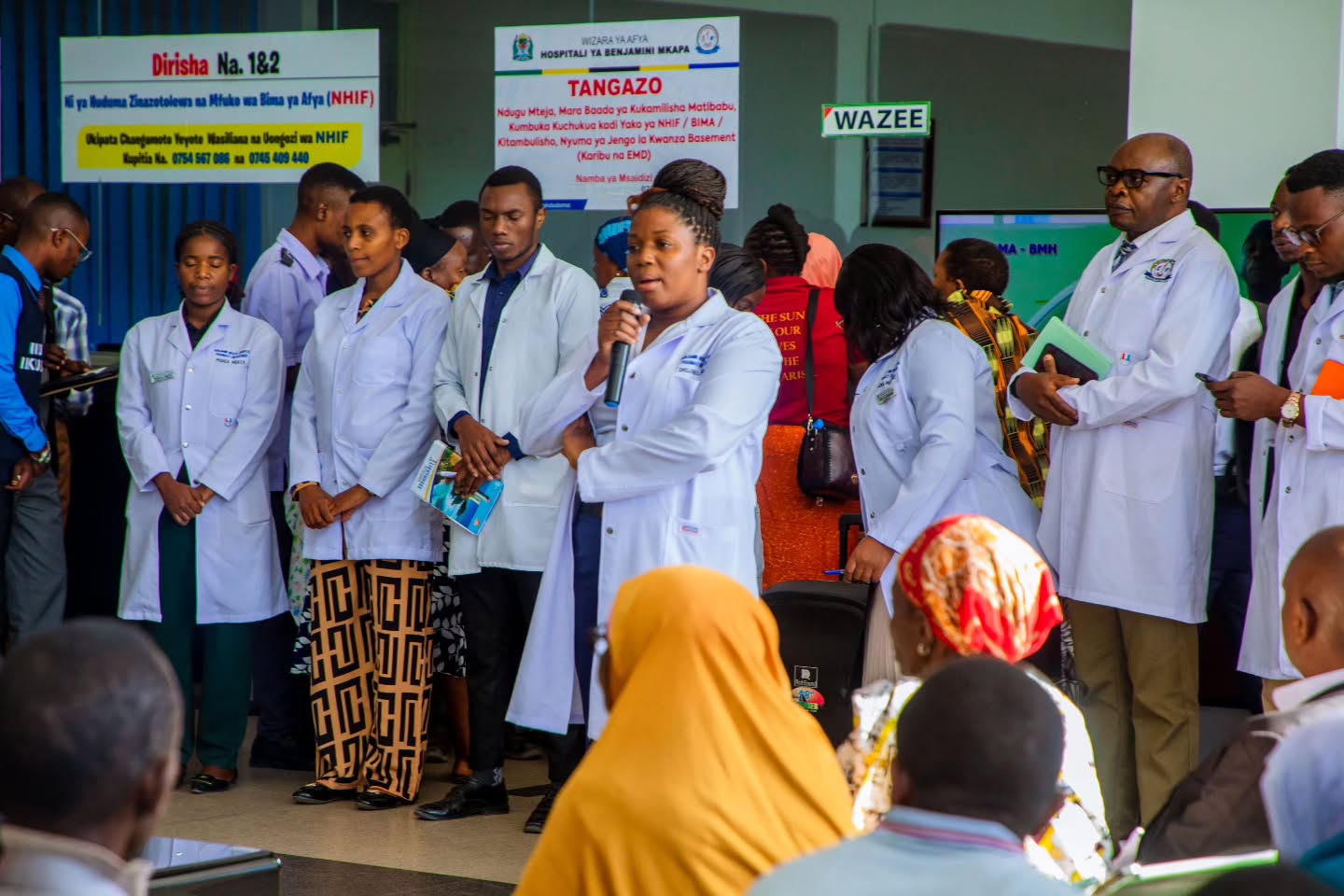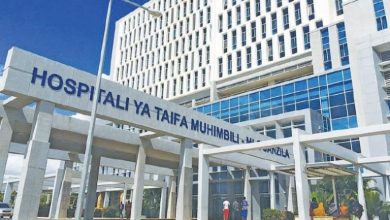BMH marks World Pharmacists Day with an alert on misuse, improper dosage schedules

DODOMA: THE Executive Director of Benjamin Mkapa Hospital (BMH), Prof Abel Makubi, has called on Tanzanian citizens to strictly observe proper use of medicines prescribed to them, warning that misuse may lead to resistance and severe health complications.
Prof Makubi made the remarks today when joining pharmacists at BMH to mark World Pharmacists Day, commemorated every September 25 to celebrate the role of pharmacists in building healthier communities worldwide.
The event is coordinated by the International Pharmaceutical Federation (FIP), a World Health Organisation (WHO) partner.
Speaking to patients and their relatives at the hospital’s main reception hall, Prof Makubi said medicines provide immense benefits when used correctly, but misuse, including failure to follow dosage schedules, self-adjusting doses, or stopping medication prematurely, undermines treatment outcomes.

“Some patients with hypertension, heart conditions, diabetes, kidney disease or cancer stop using their medicines without medical advice, thereby disrupting drug safety and effectiveness. This may lead to resistance and severe health complications. If a drug causes problems, the right step is to consult your doctor or pharmacist for proper guidance,” he said.
He further reminded pharmacists to strengthen communication and counselling for patients when dispensing medicines, while urging the public to know the medicines they are taking and demand clear instructions regarding their use.
Prof Makubi also assured patients that medicine availability at BMH is at the highest level, reaching 98 to 99 per cent, thanks to government investment in medical supplies and equipment.
“At present, access to medicines for patients seeking care at BMH stands at 98 to 99 per cent. The government has invested heavily in medical equipment and ensured a consistent supply of medicines,” he said, commending the state for its support.
ALSO READ: Over 500 children screened in first week of free BMH eye camp
In Tanzania, pharmacy practice is regulated by the Pharmacy Council, established under the Pharmacy Act, 2011, which registers pharmacists, licenses premises, and oversees standards of professional conduct.
The Tanzania Medicines and Medical Devices Authority (TMDA) is mandated to ensure medicines circulating in the market are safe, effective, and of good quality.
Despite this regulatory framework, challenges remain, including irrational use of medicines such as unnecessary antibiotic prescriptions and inadequate patient counselling at some community pharmacies.
Accredited Drug Dispensing Outlets (ADDOs) have been introduced to improve access to quality medicines in rural areas, but experts say more public awareness and stronger enforcement are still needed.

Prof Makubi’s message, therefore, resonates with ongoing national efforts to strengthen pharmacy services. Pharmacists in Tanzania are increasingly being encouraged to play a broader role beyond dispensing, education, monitoring drug us,e and supporting patients with chronic conditions.
For her part, the Head of Pharmacy Department at BMH, Ms Emiliana Bernado, said the hospital’s three pharmacies are well-prepared to dispense medicines while providing proper instructions to patients.
“When you are given medicines, it is your right to ask questions about their use. Our pharmacists are committed to guiding patients to ensure medicines are taken correctly,” she said.
World Pharmacists Day was first marked in 2009 and is observed on September 25, the anniversary of FIP’s founding in 1912.
Prof Makubi stressed that the occasion is not only to honour pharmacists, but also to remind the public that medicines must be used responsibly if they are to improve health outcomes.





